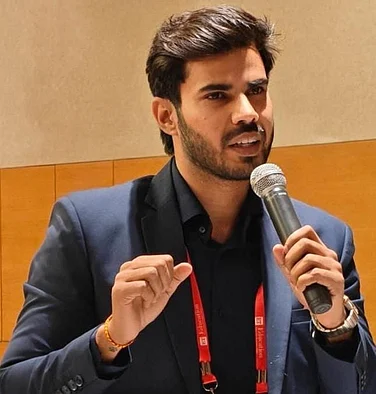At the International Procurement and Supply Chain Conference 2024 in Mumbai, Sourav Ganguly, Chairman of the ICC Cricket Committee and former Indian cricket captain, delivered a keynote that highlighted leadership as a dynamic process rather than a static position. Hosted by Blue Ocean Corporation, the conference’s theme was “India Tomorrow: Economic Supremacy through Supply Chain Transformation.” Ganguly’s address emphasized the importance of adaptability, resilience, and emotional intelligence in effective leadership, drawing from his storied career—one that changed Indian cricket and left an indelible mark on the sport’s history.
Sourav Ganguly: The Leader Who Changed Indian Cricket
Born on July 8, 1972, in Kolkata, Sourav Chandidas Ganguly, affectionately known as "Dada" (Big Brother), debuted for India in 1992 but was famously dropped after just one Test. His comeback in 1996, with a blistering 131 at Lord’s, announced his arrival as a world-class batsman. However, his true legacy was cemented when he took over as captain in 2000, inheriting a team reeling from the match-fixing scandal that had shattered public trust.
Under Ganguly’s leadership, India transformed from a timid side into an aggressive, fearless unit. He nurtured future legends like Yuvraj Singh, MS Dhoni, Harbhajan Singh, Virender Sehwag, and Zaheer Khan, backing them through failures until they became match-winners. His bold decisions—such as promoting Sehwag as an opener and trusting youngsters in high-pressure games—changed Indian cricket’s approach.
Ganguly’s captaincy record speaks for itself:
21 Test wins (most by an Indian captain at the time, later surpassed by Dhoni and Kohli)
11 consecutive ODI wins overseas (a world record then)
Leading India to the 2003 World Cup final
Historic Test series wins in England (2002) and Australia (2003-04, drawn but competitive)
Additional Insights on Sourav Ganguly
Post-Retirement Roles:
President of the Board of Control for Cricket in India (BCCI) (2019-2022) – Played a key role in organizing the 2020 IPL during COVID-19, ensuring bio-secure bubbles.
Commentator and Analyst – Known for his sharp cricketing insights.
Author – Wrote autobiographies like "A Century is Not Enough".
Awards & Honors:
Padma Shri (2004) – India’s fourth-highest civilian award.
Wisden Cricketer of the Year (2000).
BBC Indian Sportsman of the Year (2021).
Legacy:
Credited with instilling aggression in Indian cricket, paving the way for future captains like Dhoni and Kohli.
His "Ganguly School of Leadership" is studied in management courses for its emphasis on trust, boldness, and people-first approach.
Beyond statistics, his never-back-down attitude, epitomized by the iconic shirt-waving celebration at Lord’s (2002) after winning the NatWest Trophy, became a symbol of India’s newfound self-belief.
Leadership is Not a Role, It's a Journey
“Nobody starts out as a leader,” Ganguly asserted. “It’s a process shaped by experience, resilience, and the people around you.”
This statement cuts through conventional leadership theories. In his two-decade-long career—from his debut as a young cricketer to transforming the Indian cricket team into a global force—Ganguly evolved through trial, error, and unwavering grit. His captaincy was not based on formal frameworks but on instinct, emotional intelligence, and a deep understanding of people.
Business leaders generally seek playbooks and checklists. Ganguly’s experience, though, teaches that leadership involves adaptation, authenticity, and the courage to stand behind people.
1. Find Talent and Eliminate Fear
True leadership starts with the courage to believe. Perhaps Ganguly’s strongest observation was about building an environment where talent can flourish without fear. "Success is living in the moment. Not fearing what might go wrong," he claimed.
He practiced this philosophy relentlessly. As captain, Ganguly made gutsy decisions and stood by inexperienced players like Yuvraj Singh, MS Dhoni, and Harbhajan Singh—all of whom became legends. His trust in them was not based on statistics but on instinct and belief in their character.
In today’s boardrooms, this means spotting raw talent, investing in development, and fostering a culture where innovation is valued over perfection and failure is seen as a stepping stone.
2. Mastering the Art of Man Management
"A one-size-fits-all approach doesn’t work in leadership," Ganguly underscored. His team had disparate personalities—stoic Rahul Dravid, explosive Virender Sehwag, and unorthodox Zaheer Khan. Managing such diversity demanded empathy, adaptability, and trust.
He acknowledged that leadership is not about enforcing uniformity but harnessing differences. Whether in a cricket team or a global corporation, leaders must understand personalities, know when to push, when to listen, and when to step back.
Great leadership is emotional labor—the ability to inspire, guide, and sometimes lead without saying a word.
3. Vision with Adaptability
A visionless captain leads a directionless team. But a rigid vision is just as dangerous. Ganguly discussed how strategies must be adjusted mid-game—a principle he compared to Blue Ocean Corporation’s global adaptability.
The best leaders, he said, balance long-term vision with real-time responsiveness. In today’s fast-changing business world, it’s not just about keeping your eyes on the horizon but knowing when to pivot.
The Invisible Backbone: People
Behind the glamour of international cricket, Ganguly highlighted the grind—sleepless nights, media criticism, and even good-natured teasing from support staff during losses.
But he always returned to one truth: "A good leader is only as good as his team."
Leadership isn’t about being the smartest person in the room. It’s about creating a room full of bright minds and empowering them with trust, tools, and autonomy.
The Final Over: Bravery and Mission
Ganguly’s closing words serve as a leadership mantra:
Lead with vision.
Protect your team.
Don’t fear failure—or you’ll never take the risks needed to succeed.
From the cricket field to the boardroom, true leadership isn’t about commanding from the front—it’s about walking alongside your team, building trust, and standing firm when the odds are against you.
At a time when the world seeks authentic leaders, Ganguly’s journey offers a lasting lesson: Strong leaders aren’t born—they are formed through adversity, shaped by resilience, and defined by those who believe in them.






















